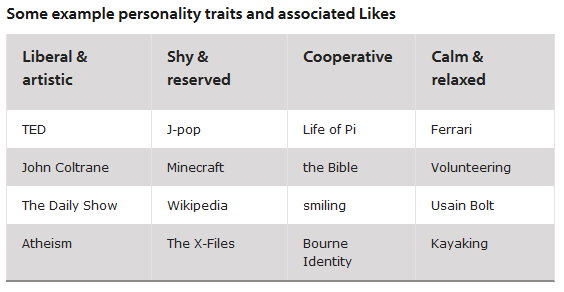January 14, 2015
Research and software released this week suggests that computers can predict our personality traits with a higher accuracy rate than our friends, family or spouse. Should we be scared or excited by the prospect of computers using the data we share online to make informed decisions?
We’ve all seen the movies where Artificial Intelligence (AI) created by and for the benefit of humans runs amok and destroys the planet. OK, so that’s not always the outcome, but are we approaching real-life scenarios of Her and Wall-E where computers fully interact with humans, knowing our likes, dislikes and reacting to our every need?
Researchers at University of Cambridge’s Psychometrics Centre have created a specially coded tool which has trawled the social media interactions of volunteers and used this information to form a picture of the person’s character.
By analysing what 86,220 volunteers “like” on Facebook and using the results of a 100-item personality questionnaire completed by the same people, the computer was able to predict certain character traits for each individual.
(Source: University of Cambridge Psychometrics Centre)
Using just 70 Likes, the computer could better predict a human personality than a colleague or friend, while 150 Likes was more accurate than a parent or sibling. And considering the average Facebook user has about 227 Likes, the possibilities of what Facebook already knows doesn’t bear thinking about. But from a marketing perspective this kind of data could be invaluable in enhancing our knowledge of our customers’ online behaviour. Thankfully, it took 300 Likes before the software was able to judge character better than a spouse.
The tool, called ‘Apply Magic Sauce’ is available for free on the Cambridge University website, and in the name of research, I gave it access to my Facebook account. The results were interesting, to say the least – for instance, as a late-20s straight man, apparently I am perceived as around 40% feminine. This is by no means a bad thing, of course, but it does make me think what I have liked in the past and since forgotten about that could be interpreted this way.
And therein lies the point – for individuals, it is a bit of fun that shows what our digital footprint reveals about us. But for brands it provides a really exciting tool to see whether how we think we are promoting ourselves is how we are actually perceived.
Try it out for yourself here – free for individuals, but businesses require sign-up.
